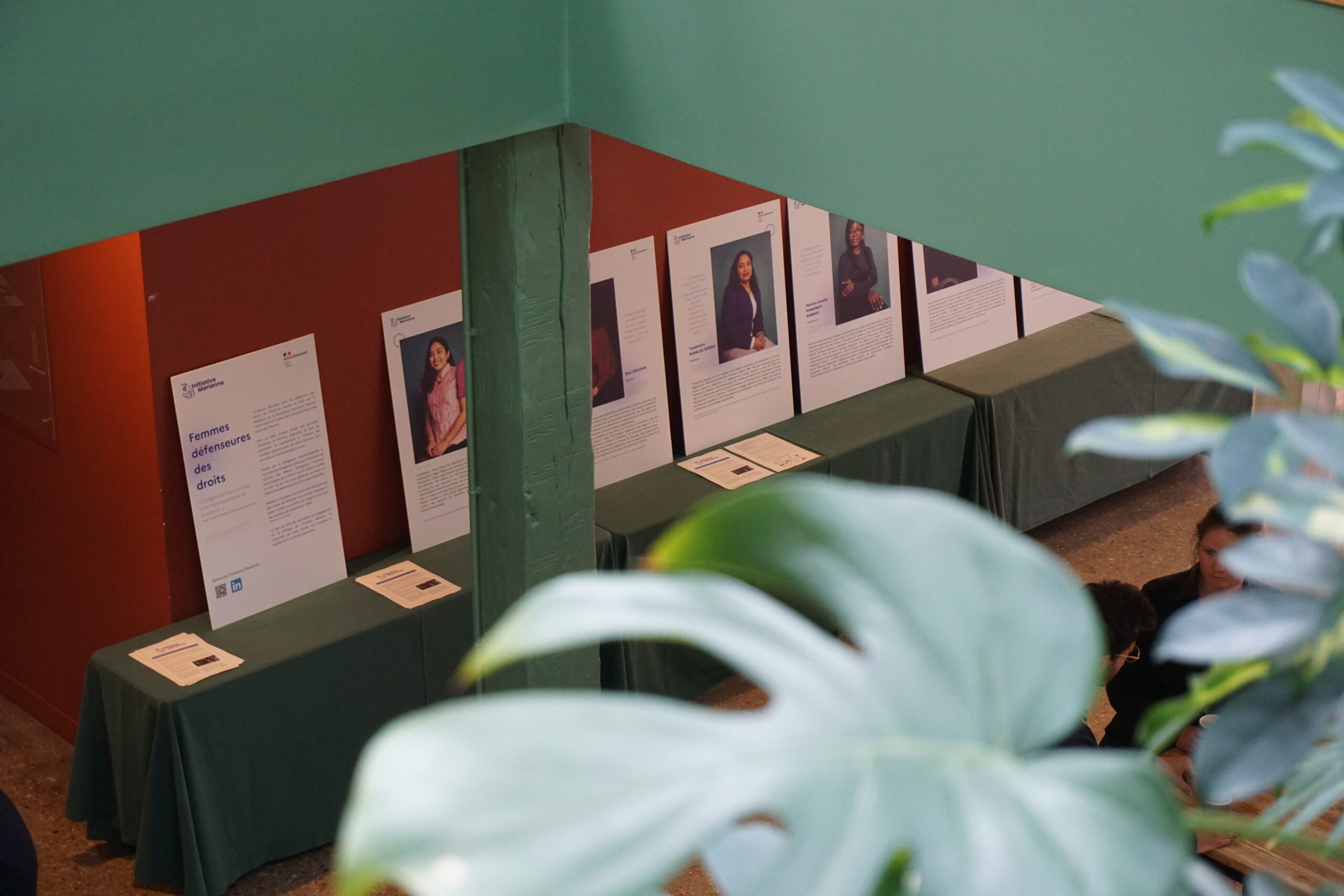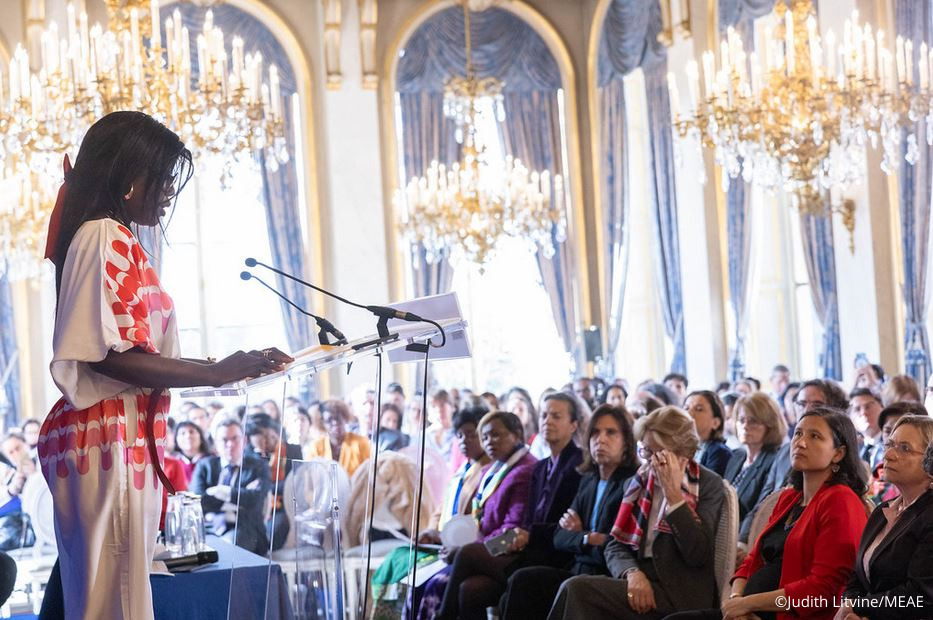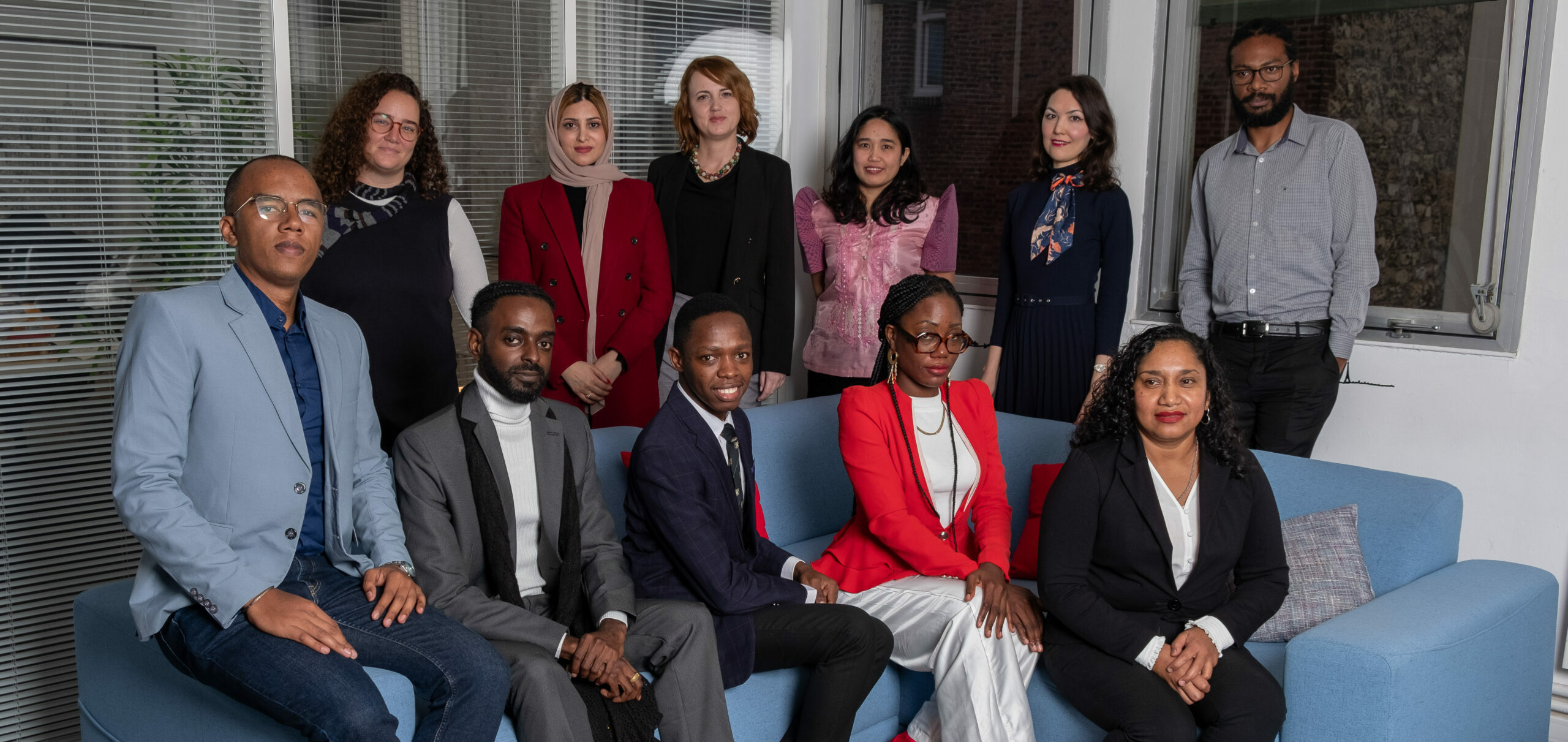
ROSALES SIERRA Teodomira
Women's and children's rights, combating enforced disappearances and sexual violence
Description
Teodomira Rosales is an Afro-Indigenous lawyer, founder and president of the Centro Regional de Defensa de Derechos Humanos since 1997. She is best known for her work against disappearances and forced displacement in the Mexican state of Guerrero. Teodomira assists the families of victims of enforced disappearance with administrative and legal procedures. She also co-founded the national collective against forced displacement in Mexico. She is also actively involved with victims of sexual violence, offering them legal support, and campaigns for access to drinking water for indigenous communities.
"The Marianne Initiative has given me the strength I need to keep fighting.
Interview with Teodomira ROSALES SIERRA - June 27, 2024
Could you please introduce yourself?
My name is Teodomira Rosales Sierra, I'm a lawyer, human rights defender and director of the José Maria Morelos Pavón Regional Center for the Defense of Human Rights in Guerrero, Mexico. I accompany victims of forced displacement, enforced disappearance and sexual violence.
Could you describe your involvement as a human rights defender?
My work is difficult but indispensable. Since I was very young, I have witnessed the human rights abuses and violations perpetrated by the authorities in my community. None of us were aware of the importance of enforcing our rights and defending ourselves: this is what prompted me to become involved as a human rights defender.
I'm involved in the fight against disappearances and forced displacement in the state of Guerrero. My job is to provide daily support to the families of victims of enforced disappearance, helping them with legal and administrative procedures, and providing psychological help to overcome the trauma.
I'm also committed to raising awareness of the rights of women and girls in my region, where violence is commonplace. During the pandemic, gender-based and sexual violence increased dramatically, particularly in indigenous communities where women do not speak Spanish. Our job is to understand what they have experienced, to provide them with legal advice and emotional support. However, few of them dare to take this complex step, some even going so far as to say that they would only do so if they were paid.
How did the Marianne initiative contribute to the realization of your project?
I am deeply grateful to this program, which supports human rights defenders around the world. Before joining the program, I was under constant threat of death in my country, which was very hard on me and my family. The Marianne Initiative offered me a moment's respite, giving me a sense of security and rekindling my determination to fight for human rights. It gave me time to reflect on my work, refine my strategies and strengthen my skills.
The Marianne Initiative gives visibility to struggles that often receive little media coverage, and to small organizations with limited financial resources. This enables us to grow and gain in credibility and effectiveness. The training courses offered are also very enriching. I hope that the Marianne Initiative will continue over time.
What training courses did you find most useful during the program?
The seminars on project management and international humanitarian law were extremely useful, as I learned how to design projects with precision. The seminar on negotiation and leadership led by Fahimeh Robiolle at Sciences Po was the most memorable for me. In addition, the training on the use of social networks was particularly important, teaching us how to make our work visible.
More generally, this program gave me the strength to continue fighting. Many rights defenders give up their fight to go into exile when the going gets too tough, which was almost the case for me. The Marianne Initiative gave me the strength I needed to persevere.
What will you do when you've finished the program?
I will be returning to Mexico to continue my work. I plan to seek reparations for the victims of forced displacement, as well as for the families of indigenous peoples without access to basic needs such as food and water. Climate change is also a cause that touches me deeply. I will also continue to support women who are victims of violence.
Would you like to add anything?
When selecting the next class, it would be a good idea to diversify and broaden the age range of the laureates, as older people have a lot to teach us.
Please let us know about the struggles you are waging in your country, as they are a source of inspiration for us.
Do you have a question? Please contact us!
Contact


